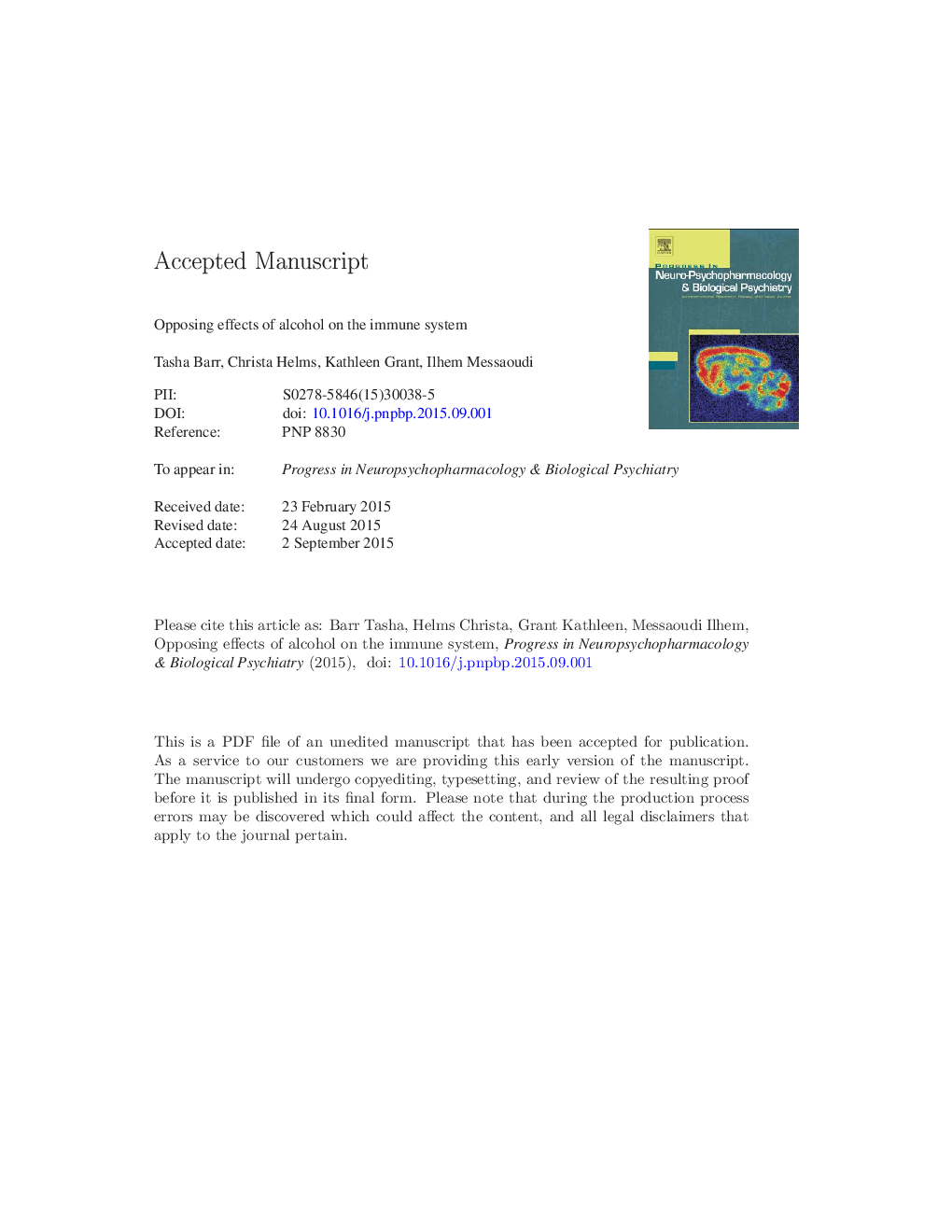| Article ID | Journal | Published Year | Pages | File Type |
|---|---|---|---|---|
| 5844232 | Progress in Neuro-Psychopharmacology and Biological Psychiatry | 2016 | 43 Pages |
Abstract
Several studies have described a dose-dependent effect of alcohol on human health with light to moderate drinkers having a lower risk of all-cause mortality than abstainers, while heavy drinkers are at the highest risk. In the case of the immune system, moderate alcohol consumption is associated with reduced inflammation and improved responses to vaccination, while chronic heavy drinking is associated with a decreased frequency of lymphocytes and increased risk of both bacterial and viral infections. However, the mechanisms by which alcohol exerts a dose-dependent effect on the immune system remain poorly understood due to a lack of systematic studies that examine the effect of multiple doses and different time courses. This review will summarize our current understanding of the impact of moderate versus excessive alcohol consumption on the innate and adaptive branches of the immune system derived from both in vitro as well as in vivo studies carried out in humans and animal model studies.
Keywords
TLRCYP2E1GREADHMAAPAMPCRHMDAPBMCACTHTNFLPSPRRnatural killerBACNFκBROSAudAlcohol use disorderinflammationAlcoholAlcohol dehydrogenasepathogen-associated molecular patternimmunoglobulin interleukinGene expressionToll-like receptorPeripheral blood mononuclear cellDendritic cellcytochrome P450 2E1IRAK-MInfectionGlucocorticoid response elementBlood alcohol concentrationtumor necrosis factornuclear factor kappa BlipopolysaccharidemalondialdehydePVNMHCmajor histocompatibility complexHPA axisImmunityHPAparaventricular nucleusadrenocorticotropic hormonecorticotropin-releasing hormonehypothalamic–pituitary–adrenalVaccinationC-reactive proteinCRPGlucocorticoidReactive oxygen speciespathogen recognition receptor
Related Topics
Life Sciences
Neuroscience
Biological Psychiatry
Authors
Tasha Barr, Christa Helms, Kathleen Grant, Ilhem Messaoudi,
